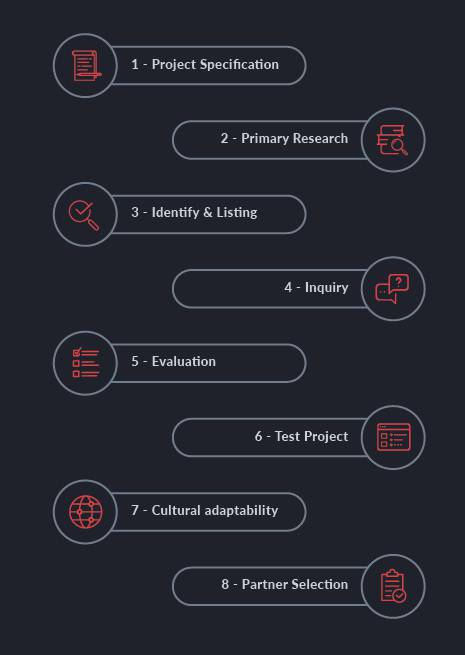Globalization is a familiar and standard practice across many industries in this era. Information technology and software development companies are also excelling in this drive. Software development teams are working together from various locations by collaborating with the software development outsourcing service providers. Some companies are even shifting their entire development wing in an offshore location to minimize cost and utilize best resource pools available. Selecting an offshore company/location to outsource software development is a critical decision to make. If the decision is not taken carefully it may hamper the success of the development project.
8 Best Practices for Offshore Software Development there
“Fall seven times, stand up eight.”
Japanese culture and thought process is addressed in the above Japanese proverb. This is one of the highly appreciable Japanese resilience approach. Personal, family, and business aspects of Japanese culture is powered by this virtue.

01. Pursuit of long-term partnerships (Beneficial for both parties).
02. Select right-sized software development company (Be the biggest customer of your vendor).
03. Appropriate development methodology selection (Agile is applicable for most scenario).
04. Intellectual Property (IP) protection by means of the regional IP protection laws.
05. Non-Disclosure Agreement (NDA) to keep proprietary information as confidential.
06. Source code ownership agreement containing all the clauses regarding the source code ownership.
07. Visit selected offshore development center to build and nurture long-term business relationship.
08. Host the development & production servers in your location to have full control.
Here are some additional tips for Japanese IT ventures considering offshore software development:
- Do your research: Before you select an offshore development partner, it is important to do your research. Read reviews, compare quotes, and interview potential partners.
- Build a relationship: Once you have selected a partner, it is important to build a relationship with them. This will help to ensure that the project is a success.
- Be flexible: Things don’t always go according to plan, so it is important to be flexible when working with an offshore team.
- Be patient: Offshore projects can take longer than traditional projects, so it is important to be patient.
By following these tips, you can increase your chances of success when working with an offshore development team.
The challenges of offshore software development
There are also some challenges to working with an offshore development team. These include:
- Language barriers: Language barriers can make it difficult to communicate with your offshore team. This can lead to misunderstandings and delays.
- Time zone differences: Time zone differences can make it difficult to coordinate communication and meetings. This can also lead to delays.
- Cultural differences: Cultural differences can make it difficult to understand the expectations of your offshore team. This can lead to misunderstandings and conflicts.
- Security risks: There is a risk of security breaches when working with an offshore team. This is because they may not have the same security standards as your company.
How to mitigate the risks of offshore software development
There are a number of things that you can do to mitigate the risks of offshore software development. These include:
- Choose a reputable partner: When selecting an offshore development partner, it is important to choose a reputable company with a good track record.
- Get everything in writing: It is important to get everything in writing, including the project scope, the timeline, the budget, and the intellectual property rights.
- Establish clear communication channels: It is important to establish clear communication channels with your offshore team. This includes regular meetings, phone calls, and email.
- Visit your offshore team: It is often a good idea to visit your offshore team in person. This will help you to build a relationship with them and to understand their work culture.
By following these tips, you can reduce the risks of offshore software development and increase your chances of success.
Developing software collaborating with an offshore software development team may seem challenging but offshoring does work and it is a prominent cost effective alternative solution for your development needs. Following the best practices, you can ensure an effective partnership ensuring greater project success rate.
“There are many paths to enlightenment. Be sure to take the one with a heart.”
– Lao Tzu

Add a Comment